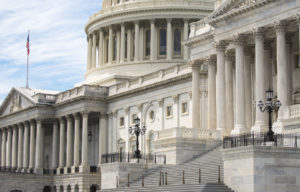News & Insights
CBP Consider 56 Comments Submitted In Response To Proposed Amendments To The Customs Brokers Regulations
CBP recently closed the comment period on its proposed changes to the customs brokers regulations in 19 CFR Part 111. A total of fifty-six (56) comments were submitted—most were concerned with ambiguity in the proposed regulatory language, while others suggested substantive amendments. CBP will evaluate the comments and decide whether to make further changes before publishing a Final Rule in the future. To access the public comments that were submitted, see http://www.regulations.gov and insert Docket Number RIN 1651-AB16.
CBP’s 32-page proposed rule, which was published on June 5, 2020, would amend the Customs Regulations by modernizing the customs brokers regulations to coincide with the development of CBP trade initiatives including the Automated Commercial Environment (ACE) and the Centers of Excellence and Expertise (Centers). See 85 Federal Register 34836 (June 5, 2020). As discussed in greater detail below, the proposed rule would:
- Transition all brokers to national permits;
- Eliminate broker districts and district permits;
- Update the responsible supervision and control oversight framework;
- Ensure that customs business is conducted within the United States;
- Require that the customs brokers have direct communication with importers;
- Raise the broker license applications fees (to recover some of the costs associated with reviewing license applications and conducting the necessary vetting of individuals and business entities).
Background
Customs brokers are private individuals and/or business entities (i.e., partnerships, associations or corporations) that are licensed and regulated by CBP to assist importers in conducting customs business. Customs brokers have an enormous responsibility to their clients and to CBP that requires them to properly prepare import documents, file documents timely and accurately, classify and value goods properly, pay duties, taxes and fees, safeguard their clients’ information and protect their licenses from misuse.
As a general rule, all merchandise imported into the United States is required to be entered, unless specifically excepted. The act of entering merchandise consists of the filing of paper or electronic documents with CBP containing sufficient information to enable CBP to determine whether imported goods may be released from CBP custody. Additionally, the term “entry summary” refers to documentation that enables CBP to assess duties, collect statistics on imported merchandise, and determine whether other requirements of law or regulation are met. Pursuant to the regulations, customs business also refers to post-summary activity, including the refund, rebate or drawback of duties, taxes or other charges.
The customs brokers regulations are issued under the authority of Section 641 of the Tariff Act of 1930, as amended (19 U.S.C. 1641). The statute and its implementing regulations provide that individuals and business entities must hold a valid customs broker’s license and permit to transact customs business on behalf of others. Standards are also set forth for the issuance of broker licenses and permits, disciplinary action that may be taken against brokers in the form of suspensions or revocations of licenses and permits, the assessment of monetary penalties against brokers, and the assessment of penalties against other persons for conducting customs business without the required licenses. The customs brokers regulations amplify the statute and provide for, among other things, detailed rules for license and permit requirements, recordkeeping and other duties and responsibilities of brokers, the grounds and procedures for the revocation or suspension of broker licenses and permits, the grounds for the assessment of monetary penalties, and fee payment requirements applicable to brokers.
The current broker regulations are based on a district system in which entry, entry summary, and post-summary activities are handled by the ports within a district for which a broker district permit is required. A district is the geographic area covered by a customs broker permit other than a national permit. Customs brokers are currently required to maintain a physical presence within the district so that the broker is physically close to the port of entry to file any paperwork associated with an entry, entry summary or post-summary activity.
Two major developments have changed the traditional ways that customs brokers interact with CBP: (1) the establishment of Centers of Excellence and Expertise (Centers); and, (2) the creation of the Automated Commercial Environment (ACE). In December 2016, CBP codified the Centers to handle operational trade functions previously residing within ports of entries and port directors—those functions were transferred to Centers and Center Directors located in strategic locations around the country to focus CBP’s trade expertise on industry-specific issues and expertise for importers. CBP established these Centers to facilitate trade, reduce costs, increase compliance and achieve uniformity of treatment at the ports of entry for the identified industries. Thus, a variety of post-release functions previously handled by port directors were transferred to Centers and Center Directors. The Center structure is based on subject matter expertise, as opposed to geographic location, placing them outside of the district system as it currently exists. The current broker regulations, which are based on the district system, do not fully reflect how trade functions are being processed by CBP.
With respect to the other relevant major development—the creation of ACE—note that ACE was rolled out on November 1, 2015 as the official, CBP-authorized EDI system. ACE now offers the operational capabilities necessary to enable uses to transmit a harmonized set of import data elements via a single window to obtain the release and clearance of imported merchandise. As a result, the International Trade Data System (ITDS) eliminates redundant reporting requirements and facilitates the transition from paper-based reporting and other procedures to faster and more cost-effective electronic submission to, and communication among, government agencies. These electronic capabilities that allow brokers to file entry information in ACE reduce the need for brokers to be physically close to the ports of entry as currently required under the district permit regulations.
CBP proposes to modernize the customs brokers regulations to align with the development of ACE and the Centers. Specifically, the proposed changes will transition all brokers to national permits and expand the scope of the national permit authority to allow national permit holders to conduct all customs business throughout the customs territory of the United States. CBP proposes to eliminate broker districts, district permits, district permit waivers and the requirement for brokers to maintain district offices. Upon adoption of a Final Rule, CBP expects to provide guidance to those brokers with only district permits to transition to a national permit. CBP is also proposing, among other changes, to update the responsible supervision and control oversight framework, ensure that customs business is conducted within the United States, and require that the customs broker have direct communication with the importer. CBP claims that the proposed changes should enable brokers to meet the challenges of the modern operating environment while maintaining a high level of service in customs business.
Observations
It is somewhat surprising that so many comments were filed in response to the proposed rules as CBP stated that it consulted extensively with brokers and others in the trade community before publishing the proposed rule. In reading the proposed rule, many questions arise that are not answered in its language. One example is a new provision whereby CBP would require that brokers report to CBP—
…when it separates from a client relationship as a result of the broker’s determining that the client is intentionally attempting to use the broker’s services to defraud or otherwise commit any criminal act against the U.S. Government.
Such a requirement seeks to make the broker an informant of the government and flies in the face of customary business relationships. Such a provision makes the trusted broker/client relationship precarious and would promote distrust between the parties. How will this rule be applied and enforced against a broker? What penalties would the broker suffer if it fails to report?
Another example of confusion is the provision in 19 CFR 111.36 that the broker—
…must directly obtain a power of attorney directly from the importer of record or drawback claimant, and not via a freight forwarder, to transact customs business for that importer or drawback claimant.
The broker must be able to have direct communication with the importer or drawback claimant and the forwarder may not prevent it. In the background section of the proposed rule, CBP states that the power of attorney must come directly from the importer and not from a freight forwarder “or any other third party agent.” However, in the actual proposed regulations, the change language is limited to the freight forwarder.
Actually, a principal’s designation of authority to conduct customs business on its behalf was settled some 26 years ago in a Customs Ruling issued to clarify the then existing confusion over the issuance of powers of attorney by agents. In ruling HQ 223453 (January 21, 1992), Customs held that a broker acting as an agent for a principal can appoint another broker to act on behalf of that principal only when the initial power of attorney expressly gives the first broker the power to do so. This is a longstanding practice between principals and agents. The power stems from the principal, making the second broker a direct appointee of the principal. Over time, standard powers of attorney obtained by customs brokers, freight forwarders and others were framed to include language that provided direct authority from the principal to the broker handling a transaction. Why, in an effort to simplify and update its regulations, would CBP want to revert to an arcane procedure that would result in delaying entry clearance? CBP portrays the change as an easy to obtain procedure—but it fails to realize that many importers do not readily directly provide powers of attorneys to agents.
There is little objection to updating the regulations and discarding district permits in favor of national permits. It makes sense in an electronic era, but there are several examples of confusion (such as those mentioned above) that are inherent in CBP’s proposed rules. We will have to wait and see when (and if) a Final Rule issues, and whether it addresses the concerns of the brokerage and trade community.
News & Insights

U.S. Announces Withdrawal from the Iran Nuclear Deal and the Snap-Back of Previously Lifted Sanctions
On May 8, 2018, the President announced that the United States would withdraw from the Joint Comprehensive Plan of Action (“JCPOA”), and begin reimposing the nuclear-related sanctions that were lifted in 2015. He also issued a National Security Presidential Memorandum

Around the World with Trade Deals – Global Chamber® and the Thunderbird School of Global Management
On March 5, 2020, the Global Chamber® and the Thunderbird School of Global Management hosted the seminar and globinar “Around the World with Trade Deals” at Thunderbird’s headquarters in downtown Phoenix. The event featured an expert panel on free trade


